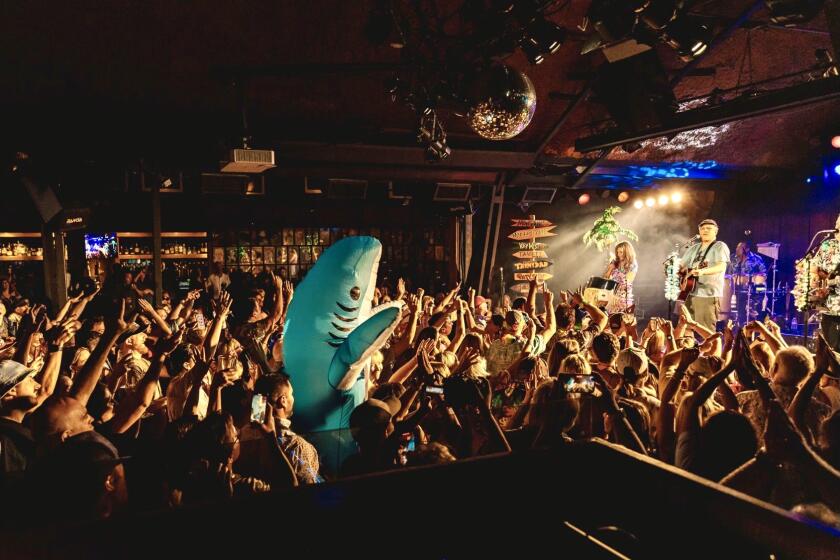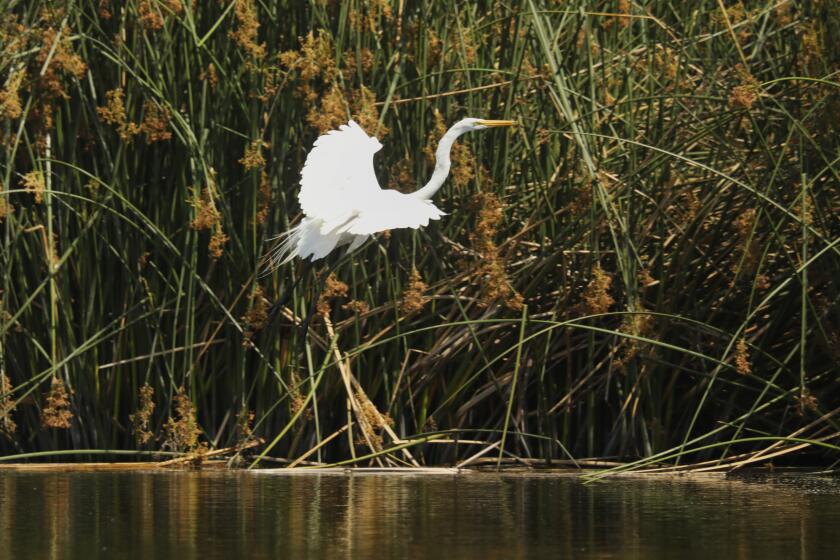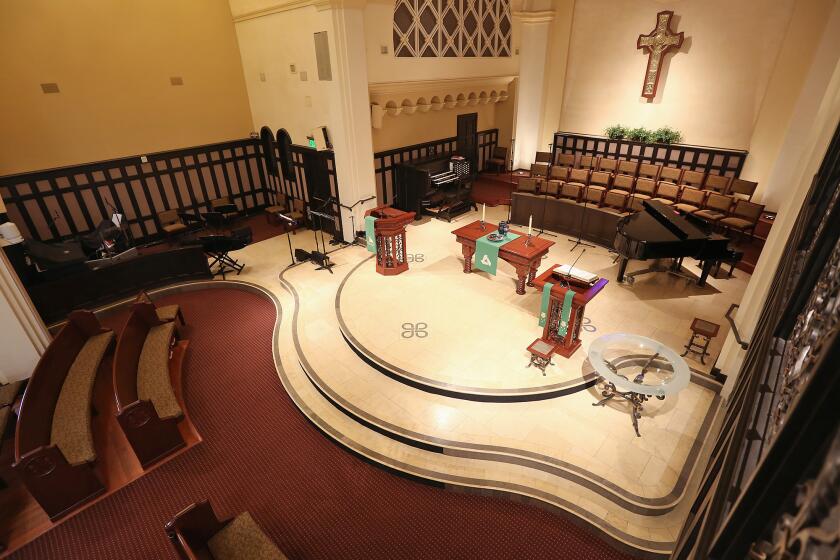A BBQ to remember
Young Chang
Ah, the smells of summer.
A salted sea. Watermelon juice that dribbles down your chin. Dampened
grass courtesy of the hose that also drenched your brother. Melted fat
dripping onto fiery coals, the smell of a sizzling T-bone steak smoking
away.
Vaporized fat is all it is, but this is what makes barbecuing the hot
event once temperatures rocket and Memorial Day arrives, said John
Doughty, store supervisor for the Costa Mesa location of Barbeques
Galore.
“The first big barbecue of the season is usually Memorial Day, and
Father’s Day is also a big barbecue weekend, as is the Fourth of July of
course and then the season finale, Labor Day,” he said.
Everyone will be doing it -- in the yard, on the beach, in the park,
on the balcony -- so area barbie-pundits offer their insights.
Cook with the coals after they’ve completely ashed over into a light
gray, which takes about half an hour. Don’t assume the food is cooked
just because you made a big flame.
“It’s full cooking as opposed to just fire cooking,” said Nancy
Martin, kitchen manager at Bandera Restaurant in Corona del Mar. “People
like to see the flame, but that doesn’t cook the food, that just burns
the food.”
If you’re using a gas grill, which most people are these days
according to Doughty, clean it. Unclog all the chips to prevent
incomplete cooking.
“If the grill is dirty, you end up just smoking your food instead of
cooking your food,” said Tom Shields, the chef at The Bungalow in Corona
del Mar.
How do you know when the food is cooked? Take its temperature. Have a
thermometer and test the meat. Ground beef should have an internal
temperature of 155 to 160 degrees, Shields said. Steaks can vary,
depending on how you like them. Chicken should be about 160 degrees, fish
about 135 to 140.
Shields cautions about cooking ground meat.
“A steak tends to have any bacteria it has on the outside, so it’s
killed quickly with cooking,” he said. “With ground meat, the bacteria
outside is inside ‘cause you ground it and it mixes it all inside. So you
have to cook it really well to cook internally as well as externally.”
Some pre-cooking tips: use high quality meat.
“If you don’t have really good meat you might as well not bother,”
Martin insists.
Don’t leave the food out too long where it’s warm.
Keep the ingredients simple, because too many condiments can
complicate cooking, Shields said.
Season the food after it’s been well cooked.
“This is what experts recommend,” Doughty said. “That you shouldn’t
season the steak with salt first because it tends to pull the juices
out.”
Adopt a family of bell peppers -- yellow, green, red -- they’re
grill-worthy, as are squashes and zucchinis.
“Toss ‘em in a little oil, salt, pepper, and put ‘em right on a
grill,” Shields said.
Try one of his creative toppings: grill some sliced yellow onion with
a little bit of butter, salt and black pepper in a little foil tub. Cook
this for about 5 to 10 minutes -- the longer you cook it, the sweeter the
onions will get. Try the same with green onions, scallions or leeks.
“They’re great for a grilled steak or a grilled piece of chicken,” he
said.
Corn: don’t husk it. Don’t even season it. Just put it on the grill
and the corn’s natural moisture will juice it.
Whatever you’re cooking, wrap it in bacon. Doughty does this with his
filet mignon.
Stick with spatulas and tongs. Avoid poking around with forks because
holes in the food let juices escape.
And, as always, be safe. Check your equipment if it’s been sitting in
the garage for three seasons and make sure nothing’s leaking or broken.
If you’re barbecuing on the patio or balcony, don’t dump used coals in
a plastic container, especially if the bin sits next to a wooden railing
or something else flammable. Use a metal container.
“The coals will burn through the plastic container and set the balcony
on fire,” said Capt. John Blauer, from the Newport Beach Fire and Marine
Department.
In parks, remember not to throw ashes, hot coals and firewood onto the
grass.
Same rule for the beach, except it’s don’t bury your trash in the
sand. This is especially important in fire rings, or areas designated for
open fires on the beach, where shore barbecuers are encouraged to cook.
“People have great big fires at night and at the end of the day they
toss the sand on top of it to put it out and it’s like a great big oven
underneath and people will burn their feet just by stepping on a 12-hour
old fire,” Blauer said.
When it comes to grill safety, Shields recommends a good dose of
common sense.
“There are a lot of gas grills and barbecues, so it’s really just a
matter of you getting used to the one you have. Practice and have fun
with it,” he said. “And just keep a squirt bottle handy.”
All the latest on Orange County from Orange County.
Get our free TimesOC newsletter.
You may occasionally receive promotional content from the Daily Pilot.



